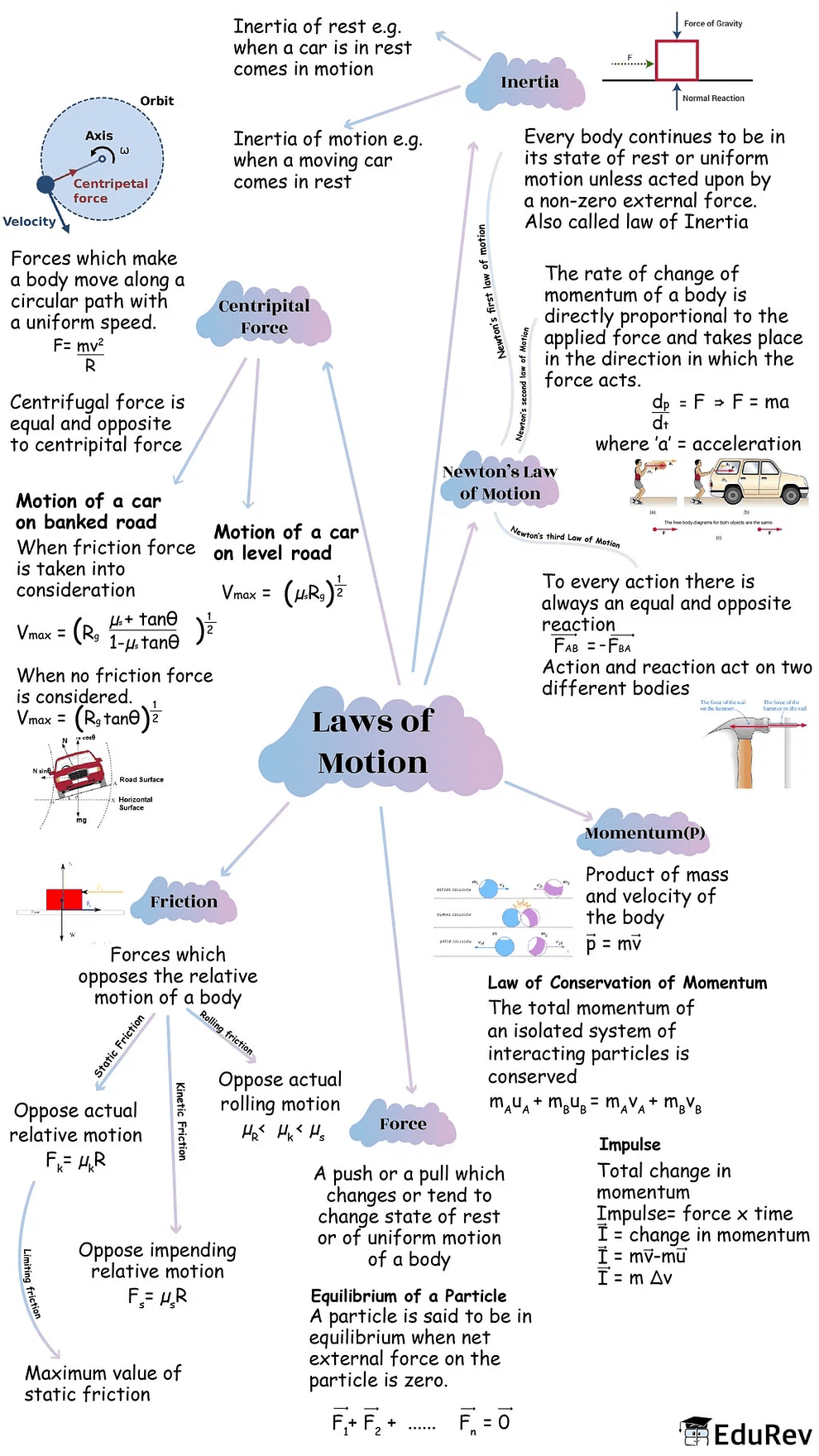NEET Exam > NEET Notes > Physics Class 11 > Mind Map: Laws of Motion
Mind Map: Laws of Motion | Physics Class 11 - NEET PDF Download

The document Mind Map: Laws of Motion | Physics Class 11 - NEET is a part of the NEET Course Physics Class 11.
All you need of NEET at this link: NEET
|
96 videos|367 docs|98 tests
|
FAQs on Mind Map: Laws of Motion - Physics Class 11 - NEET
| 1. What are the three laws of motion formulated by Sir Isaac Newton? |  |
Ans. The three laws of motion formulated by Sir Isaac Newton are:
1. Newton's First Law (Law of Inertia): An object at rest stays at rest, and an object in motion stays in motion with the same speed and in the same direction unless acted upon by a net external force.
2. Newton's Second Law: The acceleration of an object is directly proportional to the net force acting upon it and inversely proportional to its mass, expressed by the formula F=ma (Force = mass × acceleration).
3. Newton's Third Law: For every action, there is an equal and opposite reaction.
| 2. How do Newton's laws of motion apply to everyday life? |  |
Ans. Newton's laws of motion can be observed in various everyday situations. For example, when riding in a car, if the driver suddenly stops, passengers lurch forward due to inertia, illustrating the First Law. When pushing a shopping cart, the harder you push (more force), the faster it accelerates, demonstrating the Second Law. Lastly, when you jump off a small boat, the boat moves backward as you move forward, showing the Third Law.
| 3. What is the significance of the law of inertia in understanding motion? |  |
Ans. The law of inertia, or Newton's First Law, is significant because it explains why objects resist changes in their state of motion. It helps us understand that an object will not change its velocity unless acted upon by an external force, which is fundamental in analyzing motion in physics and engineering.
| 4. Can you provide examples of Newton's Second Law in real-world applications? |  |
Ans. Yes, examples of Newton's Second Law in real-world applications include:
- A car accelerating when the driver presses the gas pedal. The force generated by the engine causes the car to accelerate based on its mass.
- A baseball being hit by a bat; the harder the bat strikes the ball (more force), the faster the ball accelerates away.
- The use of seatbelts in cars, which provide a force to counteract inertia during sudden stops, keeping passengers safe.
| 5. How does Newton's Third Law explain the propulsion of rockets? |  |
Ans. Newton's Third Law explains rocket propulsion through the principle that for every action, there is an equal and opposite reaction. When a rocket engine expels gas downwards at high speed (action), the rocket experiences an upward thrust (reaction), allowing it to ascend into space. This principle is fundamental to understanding how rockets operate in the vacuum of space.
Related Searches






















